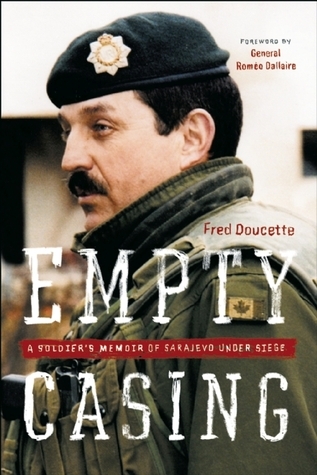This book took me by surprise. Having a long-standing interest in the subject, I picked it up in an airport bookstore with no particular expectations, but it turned out to be a well written, moving and honest account of the author's experience in Bosnia and his struggle with PTSD. I'd highly recommend it to anyone with an interest in the subject, or in UN peacekeeping efforts in the former Yugoslavia.
Fred Doucette makes no attempt to shock the reader, to surprise or disgust. There is no cheap sentimentality. He recounts his experiences frankly, expressing distaste for "war porn." Occasional interchapters under that heading -- war porn -- are included, describing such things as finding a severed finger lying in a Sarajevo street, or a body with a smashed skull, but these are set off from the rest of his story.
The great strength of this book is its honesty. Doucette makes no effort to conceal his bad decisions or his attempts to rationalize away his problems. He provides the full experience, including an excellent account of his first intrusive flashback.
Highly recommended.

